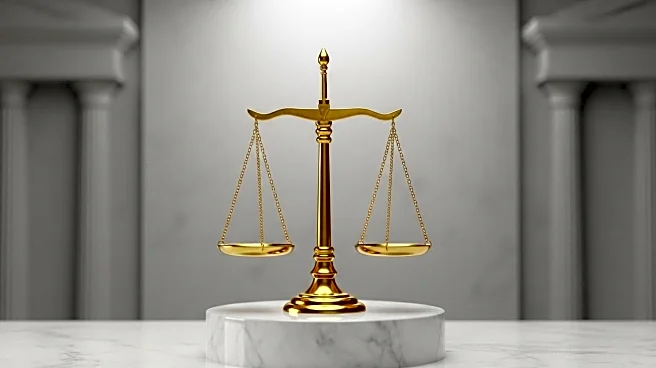What is the story about?
What's Happening?
The Supreme Court is set to hear arguments in January regarding the Trump administration's attempt to dismiss Federal Reserve governor Lisa Cook over allegations of mortgage fraud. President Trump notified Cook of her dismissal on August 25, following accusations by federal housing regulator Bill Pulte that Cook improperly listed both an Atlanta condo and a Michigan home as her primary residence to secure favorable loan terms. Cook has sued to retain her position, and her removal was blocked by both a federal judge and an appeals panel. The White House appealed to the Supreme Court, which announced it would hear the case while deferring the administration's bid to overturn lower court rulings that keep Cook in her role.
Why It's Important?
This case holds significant implications for the balance of power between the executive branch and independent federal agencies. The Trump administration's challenge to Cook's position at the Federal Reserve raises questions about the extent of presidential authority over federal appointments. The outcome could impact the Federal Reserve's operations, particularly in its role in setting monetary policy. The administration's push to remove Cook is part of a broader effort to influence the Fed's interest rate decisions, which have been a point of contention amid economic pressures. The case also touches on legal interpretations of the Federal Reserve Act of 1913, which stipulates conditions under which Fed governors can be dismissed.
What's Next?
The Supreme Court's decision will likely set a precedent for future cases involving executive authority over federal appointments. If the court sides with the Trump administration, it could embolden future presidents to exert more control over independent agencies. Conversely, a ruling in favor of Cook could reinforce judicial checks on executive power. The case will be closely watched by political leaders, economists, and legal experts, given its potential impact on the Federal Reserve's independence and the broader implications for U.S. governance.
Beyond the Headlines
The case highlights ongoing tensions between the Trump administration and the Federal Reserve, particularly regarding interest rate policies. President Trump's criticism of the Fed's cautious approach to rate cuts reflects broader economic debates about managing inflation and stimulating growth. The legal battle also underscores the complexities of federal housing regulations and the scrutiny of public officials' financial dealings. The outcome may influence future regulatory practices and the ethical standards expected of federal appointees.















